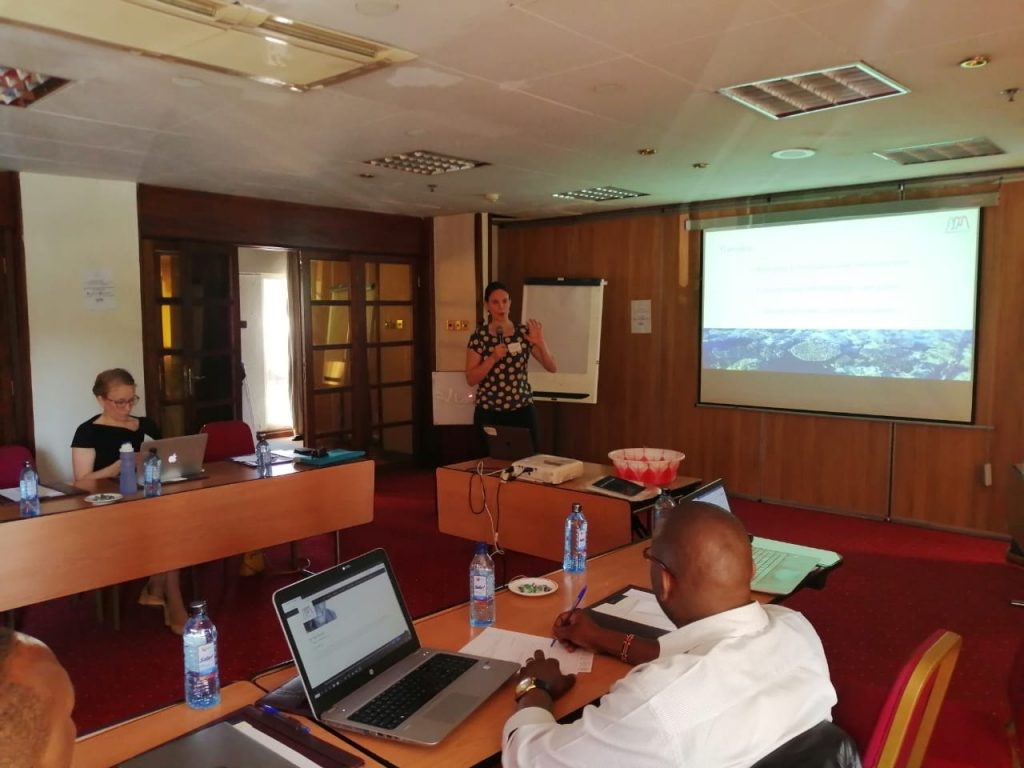
CONCEPT NOTE
INTERNATIONAL TRAINING ON FOREST AND WATER NEXUS – INTRODUCTION
COURSE BACKGROUND
Forests and water are deeply interconnected. Forest ecosystems play a critical role in maintaining water cycles, regulating water quality and availability, and supporting biodiversity and climate resilience. However, as landscapes transform due to deforestation, agriculture, and urbanization, these relationships are increasingly under pressure.
ECAS Institute, committed to sustainable development and capacity building, presents this introductory course to build awareness and understanding of the forest–water nexus. Designed as both a stand-alone learning experience and a gateway to more in-depth workshops (e.g. FAO’s capacity development guide), this course equips learners with foundational knowledge of how forests and water systems interact, and why these linkages matter in policy and practice.
COURSE OBJECTIVES OF THE TRAINING
This course aims to:
- Introduce the essential relationships between forests and water systems.
- Explain the impacts of changing land use and forest cover on water resources.
- Raise awareness of the ecological, economic, and social value of forest–water interactions.
- Highlight the need to integrate water considerations into forest management strategies.
WHAT YOU WILL LEARN
Participants will gain insights into:
- How trees and forests influence water cycles (quality, quantity, and timing).
- The environmental and socio-economic benefits of forest–water relationships.
- The consequences of land use changes (e.g., deforestation, degradation) on water systems.
- The role of integrated management approaches in protecting forest and water resources.
- The rationale for including water-related goals in forest policies and land-use planning.
DURATION AND PROGRAM
TARGET PARTICIPANTS
This course is suitable for a broad and interdisciplinary audience, including:
- Policy-makers in environment, forestry, and water sectors
- Forestry and land managers
- Water resource professionals and hydrologists
- Environmental practitioners and planners
- Academics and students in natural resources, forestry, and environmental science
- NGO staff and development practitioners
TRAINING MODULES
| No | Module | Details | |
| 1. | Introducing Forest–Water Relationships |
This lesson explores the fundamental relationships between forests, trees, and water systems. It introduces the hydrological functions of forests and highlights their significance in sustaining healthy ecosystems and human well-being.
Topics:
|
|
| 2. | Understanding the Impact of Changing Landscapes on Water |
Landscapes are constantly changing due to agriculture, infrastructure, urban expansion, and deforestation. This lesson examines the effects of these changes on water systems and why water-related outcomes should be central to land and forest management decisions.
Topics:
|
|
| 3. | Integrating Water into Forest Management |
This lesson explores how sustainable forest management (SFM) can be enhanced by integrating water objectives, with a focus on practical strategies and tools.
Topics:
|
|
| 4. | Governance and Collaboration in the Forest–Water Nexus |
Effective forest–water governance requires cross-sectoral collaboration and stakeholder engagement. This lesson looks at institutional and governance dimensions.
Topics:
|
|
TRAINING STYLE
The modules will be taught through PowerPoint presentations, and lectures and will include a case study/field visit, breakout sessions, case studies and other interactive discussion components.
The course will also include a few guest speakers, both in person and via Zoom and other online learning platforms for overseas speakers. This provides useful real-world insights alongside the more theoretical aspects of the course.
The conference faculty shall consist of experienced decision makers, as well as practitioners and representatives from established educational and research institutions active around climate change, engineering and international development. Throughout the course, theoretical presentation of concepts will be moderated and more group discussions and plenary engagements will be optimized. PowerPoint presentations will be made by facilitators and resource persons, to highlight key concepts before embarking on group work.
GENERAL NOTES
- Training manuals and additional reference materials are provided to the participants.
- Upon successful completion of this course, participants will be issued with a certificate.
- We can also do this as a tailor-made course to meet organization-wide needs. Contact us to find out more: info@ecasiafrica.org.
- Payment should be sent to our bank account before the start of training and proof of payment sent to: info@ecasiafrica.org.
ABOUT ECAS INSTITUTE
The ECAS Institute designs and delivers independent and targeted training, research, and consulting services. Our work focusses on climate change and resilience building, carbon markets, renewable energy, nature-based solution, biodiversity conservation, agriculture and food systems, We are located in Nairobi Kenya and work across the African region. We have implemented training and research assignments in Kenya, Tanzania, Uganda, South Sudan, Somalia, Malawi, Rwanda, Congo, and South Africa. Globally, we have supported our partners from the UK, Denmark, Italy, Sweden, Germany, and USA.

